Do I Need An Agent To Land Acting Roles?
Contents
ToggleIf you’re an actor just starting in the industry, it can be a struggle to get your foot in the door or find the right audition. For this reason, many actors seek help via an agent.
While an agent can undoubtedly play an important role in furthering an actor’s career, are they absolutely necessary? The answer depends on a few different things.
To help you decide whether signing on with an agent is a wise career move, we’ve prepared this easy-to-follow guide.
Can I Be An Actor Without An Agent?
First things first, yes, you can pursue a career as an actor without having an agent. There are no rules stating you must have an agent to secure roles.
Having said that, the speed at which your career progresses can be largely influenced by whether or not you have one. So what does an agent do and how does this support your career growth and goals?
Let’s take a look.
The Role Of An Agent
Agents serve many purposes and having one as an actor can help to immediately validate you in the eyes of the industry.
With an agent on your side, you can expect:
Proper Recognition
An actor with an agent is demonstrating their commitment to their career. It shows you are serious about making it in the industry and are backed by professional representation.
An agent is an actor’s biggest advocate and will sell them much better than they can sell themselves. They’ll fight to see you succeed and make sure you’re not overlooked among more established actors.
Greater Opportunities
Agents have many valuable industry connections and are often aware of roles before they are advertised for an audition. This means greater access to opportunities and the ability to audition for roles you may not have been aware of.
Casting directors may even seek out trusted agents to cherry-pick from their signed actors rather than go through a proper audition process. This can put you front and centre without having to do any legwork.

More Successful Outcomes
An agent knows what it takes to make it in the industry. This means they will:
- Guide you to the right acting classes
- Make sure your showreels and pictures are perfect
- Ensure your online presence is favourable
- Teach you industry insights
- Make sure you are presentable and desirable to casting agents
Following your agent’s guidance and implementing any changes they feel are necessary can help you not only secure auditions but score coveted roles.
Favourable Negotiations
There is no set fee for actors and pay and conditions are something that have to be carefully negotiated. While this may make you uncomfortable, an agent lives for this. They know exactly what to ask for and will fight to make sure you get it.
Remember, in this industry, success is mutually beneficial for an actor and their agent. Agents are paid around 10% of an actor’s earnings for any roles they help them secure. It is in their best interests to see you paid well.
Proper Publicity
As you become more well-known, it can become necessary to engage a publicist, lawyer, business manager and a range of other experts who will promote your interests and protect you.
Your agent is the best person to help with this and will ensure everyone is working together to steer your career towards greater success.
Stand Out.
Check our term dates, and enrol in classes today.
When Should I Get An Agent?
Agents are not just for the famous. As the above shows, it can be highly beneficial to have an agent in your corner, especially as an unknown actor that is just starting out.
We would argue an agent is more important to unknown actors than those that are established, as they provide you with visibility.
If you’re unsure about when to reach out to acting agencies and whether they’ll even accept you as a client, you’re not alone. Most actors struggle with knowing the correct timing for this.

As a general rule, most agencies will not consider you unless you have enough experience under your belt. However, if you are consistently picking up small roles and your resume is growing, this is usually a great time to start looking for an agent.
Are There Any Cons To Having An Agent?
There are several pros to having an acting agent as we have demonstrated, but are there any downsides to watch out for?
The biggest downside to having an agent is that they work on commission, this means they will take a cut of your earnings. This is usually worked out as a percentage, somewhere between 10-20% is common.
However, this also means you are not paying them unless you’re working and it motivates them to find you work that is well paid.
Another potential downside is that signing with an agent can prohibit you from pursuing certain roles that they don’t agree with. You may also be put forward for auditions you don’t feel are right for you.
To avoid complications, it is wise to review your contract with them prior to signing and choose an agent you feel is genuinely supportive of your goals.
Prepare For Your Future In Acting
If you are struggling to secure roles and seeking to gain valuable experience, signing with an agent is not the only way. One of the best ways to further your career as an actor is to invest in acting classes.
Acting classes help you master the necessary skills and techniques for authentic performances while also showing your commitment to your career. Something agencies and casting directors both value.
As the Southern Hemisphere’s leading school for the Meisner technique, The Actors Pulse can help you launch your acting career. Providing valuable insights into auditioning, when and how to seek out an agent and ongoing support, our team is dedicated to seeing you thrive.
Whether you are brand new to acting or seeking to expand your career horizons, our classes are for you. To learn more contact 0414 475 515 today.

Billy Milionis is one of the few Australians to have ever studied under the legendary master teacher, the late Sanford Meisner. Billy has also studied story structure and scene analysis techniques with John Truby and later at UCLA. He has also spent several years doing improvisation in Hollywood with the L.A. Connection. In addition, he trained in the technique of Stella Adler, Practical Aesthetics and Lee Strasberg’s method.




